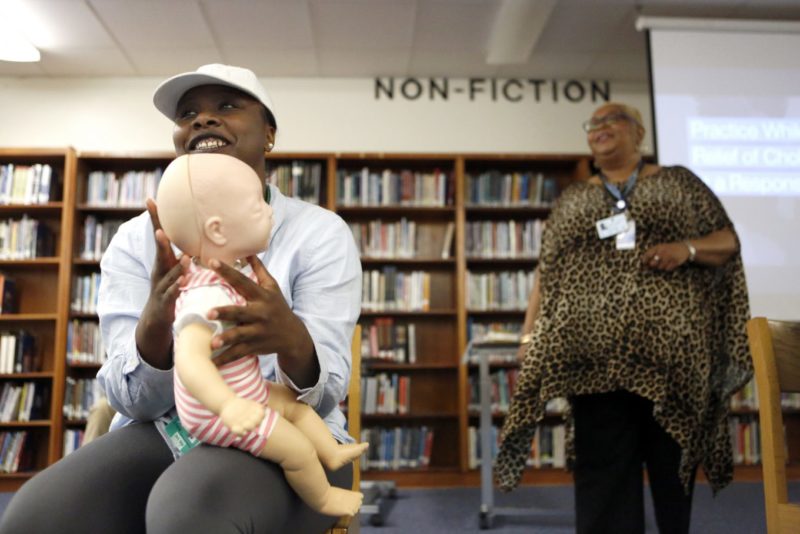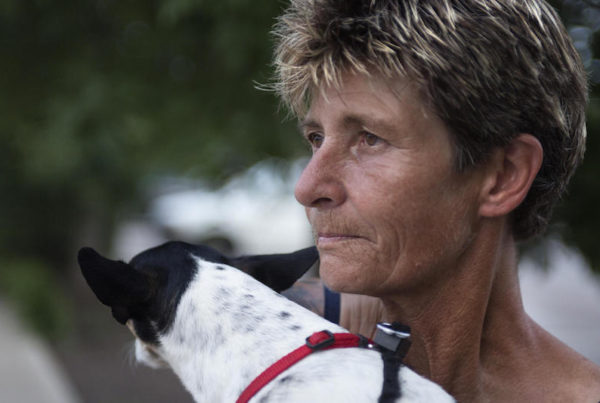It’s crunch time for high school juniors to start figuring out what’s next after graduation. Kelli Bowdy already knows what she wants to do — she wants to be a nurse. It’s something she’s known since eighth grade. Her family, though, is split on where she should go to college.
Kelli’s Fort Worth high school, O.D. Wyatt, sits seven miles south of downtown, where students are almost evenly split between African Americans and Hispanics. Three-quarters of the 1,200 students at Wyatt qualify as low-income.
Wyatt is also a Gold Seal School of Choice, so it offers career courses in construction, auto mechanics and Kelli’s key interest — nursing.
Kelli is listening to her teacher during her first class of the day.
“How much time do you have with CPR before permanent brain damage?” the instructor asks.
“Six minutes,” the class says.
“Six minutes,” the teacher says.
Kelli has talked about being a nurse for a lot longer than six minutes.
As an eighth grader, she started dreaming it might happen after she helped care for her nephew, who was born premature. Now, she seems more locked in.
A Love of Nursing
Kelli has shown immense progress in the program, based on feedback from her teachers and the school’s guidance counselors, said Javetta Jones-Roberson, who oversees O.D. Wyatt’s programs of choice.
Through Wyatt’s nursing program, Kelli takes health, science and first aid classes. By the time she graduates, she can get CPR and OSHA certification, and become a certified nursing assistant — a CNA. That would give her a leg up in college.
“CPR definitely matters,” Jones-Roberson said. “So all of our students have to have CPR certification … as part of their admission requirement.”
Ceil Flores is the assistant dean of enrollment at the University of Texas at Arlington’s Nursing School, one of the biggest in Texas. Of the school’s 50,000 campus and online students, about 20,000 — 40 percent — are in nursing.
“[Kelli] could also work in the field as a CNA, a patient-care technician, to help fund her school, to help work on time-management, to help learn to interact with patients,” Flores said.
Once the nursing bug bit, Kelli was hooked.
“I want to work at Cook’s,” she said. “I want to work with children.”
Cook Children’s is Fort Worth’s hospital for kids. To work there, Kelli needs to go to college first, but O.D. Wyatt gives her a head start.
Read more at KERA News.















